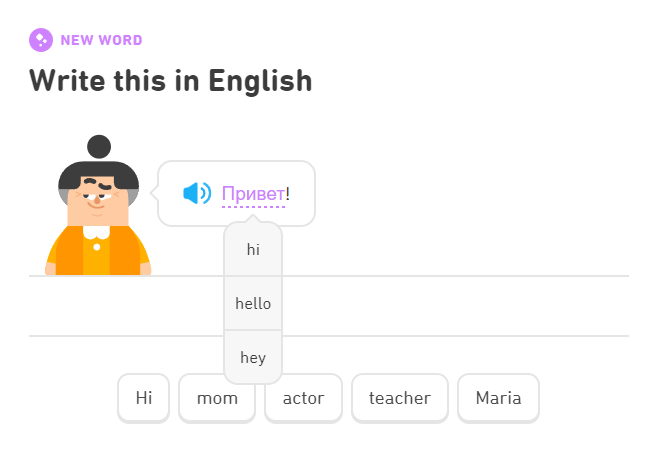There is endless information on how to learn a language, however, much of this information assumes you are learning all four skills of your language: speaking, listening, reading and writing. Not all language learners strike out to learn to read and write, in addition to speaking and listening. This post will look at language learning techniques that are specific for learning languages with a focus on speaking and listening to try and bridge this gap.
I have recently begun learning Polish for the first time. I have no prior knowledge with this language and at the moment, the times I will be using this language are going to be purely social. This means I won’t need to be able to spell words, or read them: I only need to know how to say them and understand them when they are said to me. This has meant I have needed to look around to find ways to learn a language in a way that suits my needs.

Reasons For Learning Languages
Depending on your reasons for learning a language, you may decide that it’s not worth the time and effort to learn reading and writing.
A good example of this, is if you were traveling to another country but only staying for a short period of time. It’s probably not going to be worth your while being able to spell and write words such as “apple” and “tree”, to the same degree as being able to say “Excuse me, where is the train station?” and understand the directions. You won’t need those directions to be written down, and you won’t need to be asking your question via text.
This means the time and mental energy spent learning how to read and write just won’t be as effective as putting that time and energy towards listening and speaking skills.
Another example of possibly wanting to focus on speaking and listening skills is for purely social skills. If you are seeking to interact in your target language in purely social settings, such as face to face events, reading and writing won’t be your focus.
There are opposite cases to this as well. Perhaps you are learning a dead language such as Latin, and are wanting to have these skills for studying a specific text. In this case, speaking and listening are going to be much less of a priority compared to reading and writing.
Alternatively, some language learners may wish to focus more on reading and writing (for example, learning an ancient language) instead of more social skills such as speaking and listening.
My point is that depending on your desires and goals with your target language, you may be focusing on specific skills, so learning only speaking and listening is certainly a viable approach.

What Apps Are Good For Learning To Speak And Listen In My Target Language?
There are many ways to learn a language, however, this does not mean that traditional methods are the best ways of learning a language for speaking and listening only. Learning a language to live in that country is different to learning a language to be a tourist in that country for a week.
Pimsleur on the other hand, focuses more on your ability to learn a language in the same way you learnt your mother tongue: by repetition and listening. That isn’t to say that Pimsleur also has some negatives of its own, such as some dated scenarios that it uses as part of your practice. In additon, Pimsleur is a subscription-based app. This means if money is an issue, then Pimsleur is probably not the best method for you. At time of writing, Pimsluer is $20.95 AUD per month (that’s about $13 USD/month). This doesn’t mean there aren’t other ways of learning languages with a focus on the speaking and listening though.
I would suggest first looking at Memrise as a potential language learning app. Memrise is slightly different to some of the other options that are available at this stage. One of the really great things about it is that it is crowd-created. This means that there is a wide variety of ‘Courses’ available for you to choose form that suit your needs.
As always, I would also suggest using Anki for the spaced-repetition flashcard element of learning a language. Not only does Anki have the ability to speak words to you via addons such as AwesomeTTS or embedded audio, you can also have it speak entire sentences to you rather than just single words. If you did want to use embedded audio, websites such as Forvo will be quite useful to find words spoken by native speakers. If you want to learn more about Anki, you can read the following post here to find out more. If you already know a little bit about Anki but want more information on how to add a large number of flash cards to your deck, I have a guide here.

Is It Ok To Only Learn Speaking And Listening Skills In My Target Language?
Your reasons for learning a language are for you and you alone. There is no ‘right’ or ‘wrong’ motivation and goal when learning a language. So the short answer is; yes. It is ok to learn only speaking and listening skills in your target language.
There are some negatives and some benefits of learning only the listening and speaking elements. Of course you will always be picking up some elements of the reading and writing skills as you learn your target language. For example, you’ll pick up some of the pronunciation through using flashcards, but you are also more likely to feel that you are progressing, because you are focusing on fewer skills.
This means that although you’ll be learning the language for speaking and listening, you won’t have absolutely zero skills in writing or reading. They just won’t be your focus.
Of course, it does depend on the reason you are learning a language as mentioned above.

Is Duolingo Useful To Learn To Speak And Listen Only?
Traditional apps that are normally recommended include Duolingo, however, while this is certainly commendable apps, I am not convinced it is 100% the best method for learning a language for only speaking and listening. The reason I say this is because using Duolingo relies on your ability to practice words by typing them. This may actually mean that Duolingo is not going to be all that helpful for you in your language learning journey for speaking and listening only.
In general, if you’re starting a language from scratch and it’s a different alphabet I’d recommend that you don’t use Duolingo in the beginning. It can be quite confusing and annoying to have to match foreign letters to words, before you’ve necessarily learnt what the letters even are.

Granted, it is possible, however it may not be the best starting experience of a new language. Using Duolingo, you will most likely pick up words and their spelling as you go along but if this isn’t your priority, it may not be the most effective use of your time.
When I began Polish, I didn’t touch Duolingo for several weeks, and only used Memrise and Anki. Because Memrise was audio only, there was no spelling or typing involved. It was simply recognizing the words based on the sounds and connecting English words to Polish audio.
The problem I found was that the main words I was learning were verbs. This was helpful for grammar (past/present/future) but was a pretty steep learning curve for recognizing endings and markers for tense. Unfortunately, there weren’t any explanations that I could see to explain the grammar, so I had to supplement my learning with online Google searches as well as asking questions of ChatGPT.
It was at this point that I turned Duolingo to expand vocab to sentences. The issue was that there is much more typing and spelling that I was interested in. In addition, the audio only played once and then wouldn’t replay. This meant it was quite unhelpful for solidifying my pronunciation of words.
Although I was learning more everyday words, I was being forced to learn their spelling as well. There were sometimes ways around it, such as hovering over the word to see the spelling, or looking the word up via Google translate, however this was time consuming and annoying.
One way I plan to get around this in the near future is to organize a way to use a program such as ChatGPT into a text-to-speech extension to have conversations that incorporate the words I am using.

In Conclusion
Overall, there are some hurdles to overcome when learning a language for only speaking and listening. I believe these hurdles are getting smaller and not larger as time goes on. Particularly, the advent of text-to-speech and Chatbots will help those who don’t have the finances to speak to a native speaker for tutoring.
While Duolingo and Pimsleur may be useful, they probably won’t be as effective as when learning a language normally. Anki will remain a staple app for learning the language, and Memrise may help supplement some of the learning that Duolingo cannot offer.
More information will be coming, such as how to practice speaking and listening while at home to make sure that you are learning as effectively as possible so that you are ready to jump into your conversations whether travelling abroad or having social conversations with native speakers in your own city. Happy learning!
- Should Everyone In The World Speak A Universal Language?

- The Power of Immersing Yourself In A Language For Learning

- Start Your Language Learning Journey: Duolingo And Other Methods

- Does Learning A Language Help You Learn How Others Think

- Can You Learn a Language Without Learning Its Culture?

- Unlock Fluent Expression: Sentence Builders Across Languages

- Hidden Gems: Underrated Duolingo Languages Worth Learning

- The Ultimate German Pronunciation Guide

- Where To After Finishing Duolingo For Language Learning










